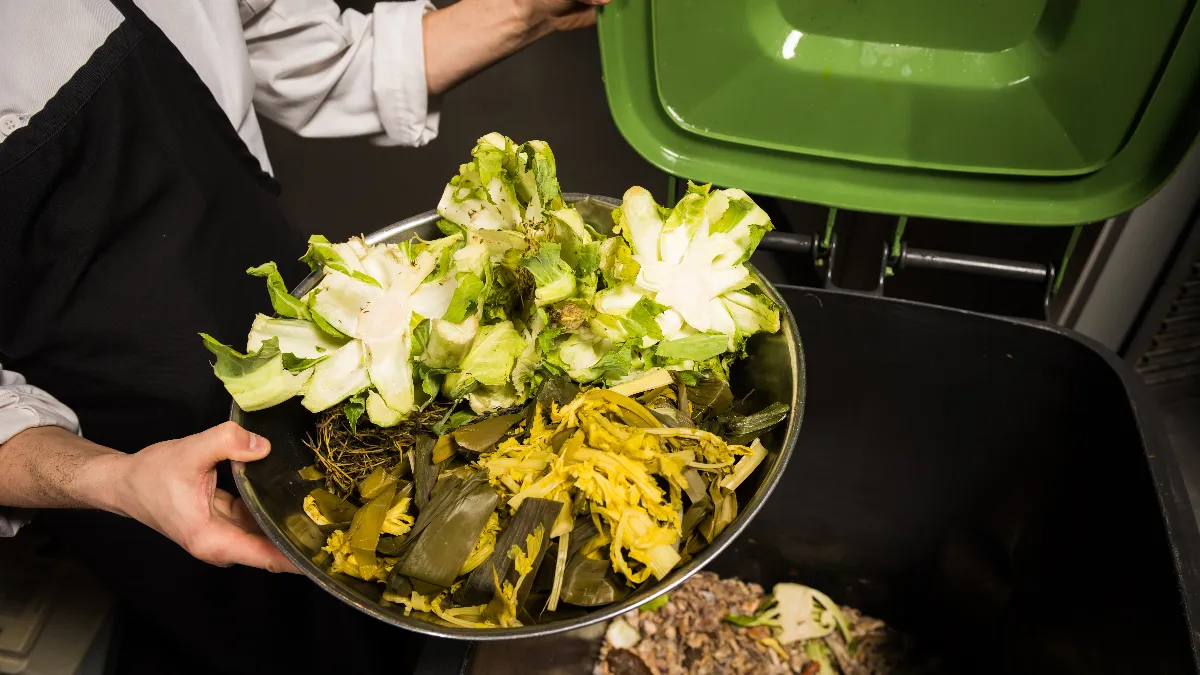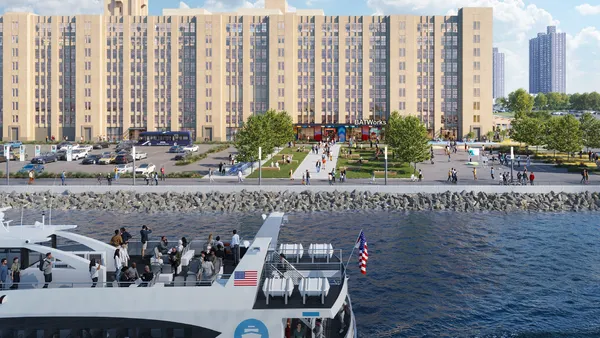Dive Brief:
- A growing number of full-scale food waste composting facilities have begun accepting compostable packaging of some sort, according to a survey conducted by the Composting Consortium and BioCycle magazine.
- That percentage grew from 58% in 2018 to 71% today, the survey results indicated. The findings reveal growing confidence in the materials as certification bodies and field-testing services become better known, according to the survey's authors.
- The number of composting facilities accepting food waste continues to grow, as 14 facilities out of 105 surveyed began doing so between 2020 and 2023.
Dive Insight:
The data comes as the tonnage these facilities can accept rises but contamination threatens their business. Federal lawmakers also reintroduced legislation to Congress this year to support building out more composting infrastructure, including the COMPOST Act and Zero Food Waste Act.
The BioCycle survey results come as Closed Loop Partners’ Composting Consortium and other industry leaders look to make composting more understandable and straightforward for consumers while managing contamination issues.
“The composting industry is at an inflection point in its development, and to meaningfully address food waste, the industry needs to spur investment and industry action to establish compost manufacturing as a viable solution for food waste at scale,” the report’s authors write.
The survey collected data from 200 food waste composting facilities in total. The top three states with the most facilities were California with 35, New York with 14 and Colorado with 13.
Of the 105 facilities run as stand-alone operations (not one of a network of locations operated by a single company, for instance), 40 began composting food waste in the last 10 years.
The report estimates that about 4% of food waste in the United States is composted, with alternative disposal methods like anaerobic digestion competing with composting facilities reluctant to take on odor and contamination concerns.
Of 145 facilities responding, 45 have a zero tolerance policy for contamination, meaning any loads with contamination are automatically rejected. A further 66 require less than 5% contamination, most of which measure by volume of contaminants.
The types of food waste accepted by composters vary. The vast majority of facilities accept preconsumer vegetative food waste, which commonly comes from supermarkets and restaurants, as well as commercial and institutional source-separated food waste. About 78% of facilities accepted all source-separated postconsumer food waste, and about 73% accept food processing and manufacturing waste.
The survey results described additional information about the types of compostable food-contact packaging accepted from 141 facilities as well. Of those, 83% reported accepting food-soiled paper and pizza boxes, and a majority were also accepting certified compostable liner bags, foodservice ware and kraft paper bags. Molded fiber containers were accepted by just under half the respondents and bioplastic-coated paper products were accepted by 31%.
The authors of the survey noted that composting capacity across the United States was growing in scale as well as numbers — the amount of full-scale food waste facilities grew 8% since 2018. In addition to more funding, they also called for additional data collection on composters through legislation like the Recycling and Composting Accountability Act to provide a better picture of the industry’s strengths and needs.












